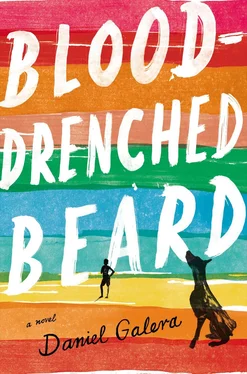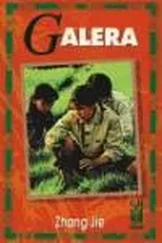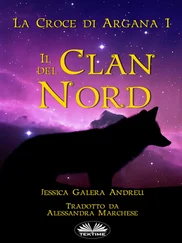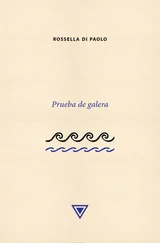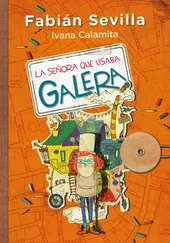Have you been camping here long?
Almost a month. We came when Ítalo turned one.
I got a fright when I heard him crying.
He’s got a fever.
Have you given him any medicine?
We took him to the medical clinic in Pinheira yesterday, says Val. They gave him some medicine.
They both speak very slowly and pause for so long before answering anything that he gets the impression they aren’t going to respond.
What are you doing here?
What do you mean?
Why are you camping here in this rain?
Why are you walking through the hills in this rain?
I didn’t know it was going to rain until the end of time when I left home.
We didn’t know either when we came here to camp.
Val hands a small roll of tinfoil to her companion, who starts to break up the marijuana in a small, round grinder.
Where are we?
Neither of them replies for a long time. Duck closes the joint, and Val uses an interval in the baby’s wailing to ask, In what sense?
In what sense what?
You asked where we are.
I want to know what place this is.
We’re in the valley.
Don’t you know the valley?
No. What’s it near?
Pinheira’s that way, over the hill, about twenty minutes from here, says Duck, pointing in slow motion as he licks the cigarette paper.
It’s hard to talk to you guys. You talk really slowly.
They don’t answer. Val backs into the tent and then emerges holding a roughly built cradle with the baby in it, rolled up in blankets. Hanging from the handle is a decoration that looks like a spider’s web.
What’s that?
A dreamcatcher.
To catch bad dreams?
She nods.
The Native American Indians used to put them on their cradles, says Duck. The good dreams pass through this hole in the middle, but the bad ones get caught in the web and are undone by the sunlight. And this feather in the middle represents the air and breathing.
The baby looks at the feather swinging in the breeze and learns that air exists, how it works, understands that it is important for him, says Val.
The baby screams so loudly that he chokes.
Is it normal for him to cry like that?
It’s the fever. He’ll get some fresh air now and will stop for a bit.
What does he eat?
Val gives her first smile and looks out of the corner of her eyes, amused.
I still breastfeed him. And we give him a bit of baby food.
I make it myself, says Duck, holding in his first puff on the joint and offering it to him.
No thanks.
Daddy’s mush. Right, pal?
Val takes the joint.
Isn’t the smoke bad for him?
No.
A flash of lightning reveals everything and hides it again before he can see anything properly. The thunder makes a dramatic pause before rumbling in. The rain grows heavier. The teapot starts to whistle on the stove. He glances around for Beta but doesn’t see her.
Are you looking for something?
My dog. She was just here.
He whistles and calls her name. Beta appears and keeps a distance.
Put her under here with us, says Duck.
She’ll shake and get everything wet.
We’ll dry her off. Val, get that dirty towel I hung from the tarp.
He calls to Beta until she is convinced she is welcome and wraps her in the towel when she starts to shake. Then he dries her carefully, talking to her in a low voice, while Duck prepares the maté, and the marijuana smoke fills the covered area, mixing with the smells of manure, milk, baby poo, and tarpaulin. Duck discards the first infusion and fills the gourd again with boiling water.
There you go, wild man. You’re shaking with cold. Maté made with rainwater to resuscitate you.
They drink maté and eat Brazil nuts, admiring the night and the lightning. Little Ítalo calms down somewhat, and his mother puts the cot back in the tent.
You can sleep under here if you want. But we don’t have a camping mattress, and the blanket got wet.
I don’t want to be a bother.
You won’t be.
Okay then. I’ve got a sleeping bag. Thanks.
He takes his damp sleeping bag out of his backpack and partially unrolls it in the small free space under the tarpaulin.
Where’re you headed?
Nowhere special. But I think I’m going to start heading home tomorrow.
How many days have you been walking?
I’m not exactly sure. About ten, I think.
I think it’s more.
Do you think I’ll be able to get a lift to Garopaba from Pinheira?
Definitely. Tomorrow morning I’m going to head down the valley to wash Ítalo’s diapers. Come with me, and I’ll show you the way. It isn’t far. You just have to be careful not to take the wrong trail. There are several that go through the hills and lead nowhere, or to the old man’s cave.
Old man’s cave?
There’s an old man who lives in a cave.
Where?
On the other side of the valley.
How do you get there?
He doesn’t accept visitors. And he’s not always there. At least that’s what they say. I’ve never been. No one goes there.
But how do you get there?
It’s in the middle of the forest between two trails. One of them leads through the bottom of the valley, and the other one goes to the top of the hill. It’s almost impossible to see the entrance until you’re really close. I’ve taken the lower trail. There’s a barbed-wire fence, and from there you can see the cave. The fishermen in Pinheira say he’s two hundred years old, and they sometimes leave fish and flour on the trail for him. He must have some kind of contagious disease because they always say not to get too close.
He starts rolling up his sleeping bag.
Can you show me how to get to the lower trail?
You want to go there now?
Yep.
I’ll show you in the morning. It’s too dark now. You won’t be able to see a thing.
I’m going now. Will you show me or not?
I’m not going out walking through the dark forest in this rain.
Let him go, mumbles Val inside the tent. The baby starts wailing again.
He hasn’t rolled up his sleeping bag properly, and now it won’t go back in its plastic bag.
I’m going to leave this here. Is that okay? I’ll come back for it afterward.
Man, no one ever goes there. There’s got to be a reason. I reckon the whole story about an old man is just some fisherman’s tale. I just mentioned it for the sake of it.
If he wants to go, let him go, says Val, sounding irritated.
Can you at least point me in the direction of the right trail?
Only if you tell me why you’re in such a hurry.
I think the old man in the cave is my granddad.
Jarbas, come here.
Duck pushes his glasses up with the tip of his finger, adjusts the position of his head to see him better, then responds to Val’s request and stoops to go into the tent. There is something turtlelike about him. The door is zipped closed. Another clap of lightning brings home the unexpected yet obvious realization that to the couple he is a frightening figure who appeared in the night without warning and that their hospitality may only be an indication that they are scared. He hears whispering behind the baby’s crying and the noise of the rain. He can’t wait to leave. Duck comes out and explains how to find the lower trail that leads to the cave. He needs to stay on the trail he was on before he saw the tent, take it downhill to a miniature beach where there is an old fishing shed, cross the creek that runs through the bottom of the valley, and turn left instead of following the main trail. After walking for a while along the foot of the hill, he will see another trail. He will come to a barbed-wire fence on his right, and a little farther along there will be a kind of gate that actually looks more like barbed wire rolled around some stakes. That’s where they say it is.
Читать дальше
